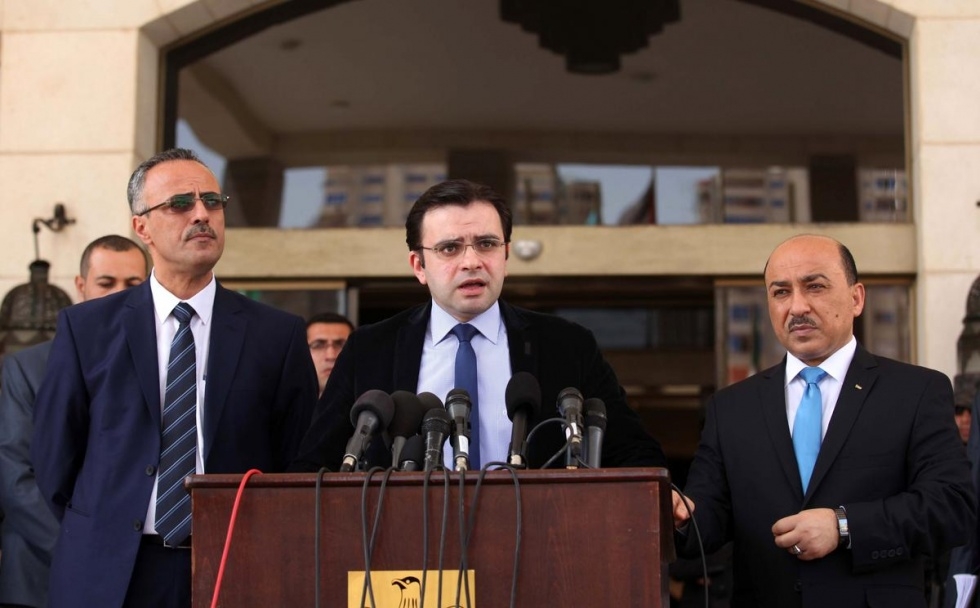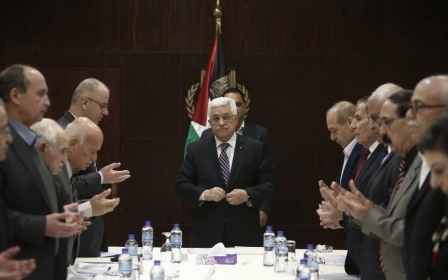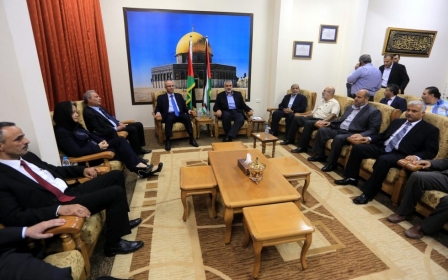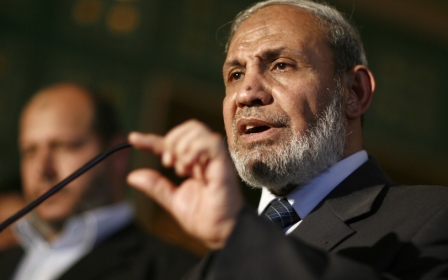ANALYSIS: One year later, Palestinian reconciliation is stalled

It’s been a year since Palestinian movements Fatah and Hamas agreed - within the Shati Agreement - to end their division, with the hope of an election process within six months. Now, a year later, there are no elections, and only a fragile consensus government which is unable to set foot on the ground, leaving the Shati Agreement on the brink of collapse.
Last week, a delegation of Palestinian consensus ministers headed to Gaza supposedly for a one-week visit to repair all issues related to long-running disputes over public employees. But the visit ended in less than 24 hours.
Following the 2007 factional fighting, Hamas has employed around 45,000 people after the PA ordered the original PA employees to stay at home as a form of protest against Hamas taking over the Gaza Strip.
The majority of PA employees - 70,000 people – are still at home on full pay from the PA. Both Fatah and Hamas remain unable to reach a compromise on integrating both old and new employees under the same leadership.
The delegation of ministers were only here for one day, before being ordered to return to Ramallah by Palestinian Prime Minister Dr Rami Hamdallah.
Secretary General of the Palestinian cabinet, Ali Abu Dyak, lays the blame for the failed meeting at the feet of Hamas for “putting up a series of obstacles”.
Welcome surprise, no progress
When Fatah and Hamas agreed to end their division and create a consensus government, this came as a welcome surprise to Palestinian people after seven years of division alongside negative media campaigns with one aim only - to bash each other.
So, a year on, not much has changed for the better. The reconciliation pact is showing signs of severe strain and it is unlikely that both factions will be able to solve the crisis anytime soon.
The consensus government - sworn in last June - is hardly able to move forward, as the de facto Hamas government maintains in control, despite having formally stepped down.
Hamas says that the consensus government is not doing its job in Gaza, while the consensus government blames Hamas for not giving it room to function. With both political sides exchanging accusations, 1.8 million people in Gaza are experiencing the worst humanitarian crisis in years, according to relief agencies.
Since the April 2014 deal, the de facto employees have received no regular wages, just a one-off payment of approximately half of them last October.
'Discrimination' claims over unpaid Hamas staff
When the ministerial delegation visited Gaza, the aim was to register all 70,000 employees - but for the de facto employees, the government announced it would hire some only “depending on needs” - a move Hamas leaders described as “discrimination”, according to the movement’s spokesman Dr Sami Abu-Zuhri.
Islamic Jihad too declared that decision as discriminatory, according to the movement’s spokesman Daoud Shihab.
"Discrimination against them is hindering reconciliation and the national project."
“There should a solution for all staff members and we refuse to abuse the wages of people and impose more obstacles on their daily lives,” added Shihab to reporters at an event showing solidarity with employees who have not received wages.
A year after the Shati agreement, Fatah accuses Hamas of not showing serious commitment toward Palestinian reconciliation, says Fatah leader Mohammed Shtaeh to Sky News Arabia.
“We want the consensus government to have full control over Gaza Strip…Hamas wants to give us the government, but keep control in its own hands.”
But Hamas also says that the consensus government should be responsible for solving all current employee crises, says Hamas media official, Taher Al-Nouno.
“The Prime minister should be held to his national responsibility to solve this problem, proving that he stands at equal distance from all the people of his nation.”
The lowest point yet
This week marks the lowest point yet, in reconciliation efforts, after the visit was abruptly ended. However, Islamic Jihad’s leader Khald Al-Batsh says his movement has been in touch with Prime Minister Hamdallah who indicated he would visit Gaza in the next week. Islamic Jihad hopes to play a role in bridging the gap between Hamas and Fatah.
“The road is still not easy,” Palestinian TV host Saed Sweirki tells MEE. He adds that, “some may think that the path is covered with roses, but in fact it is covered with burning coals.”
Meanwhile, public frustration widens across Gaza amidst high unemployment and the lack of opportunities for young graduates - leaving few doors open for options when borders are locked down by Israel and Egypt.
The current crisis is unlikely to end anytime soon, given that the prospect of new elections is unlikely. President Mahmoud Abbas said last March, in a public press meeting that he agreed to start planning for elections. However, this plan is also stalled.
Abbas said at the time: “I challenge Hamas to send a written letter to the head of the election commission, Hanna Nasser, agreeing to conduct elections, and I will issue a presidential decree that same day.”
Hamas replied, saying that “conducting elections is agreed upon in the reconciliation agreement”, but it accused President Abbas of blocking the option of elections.
New MEE newsletter: Jerusalem Dispatch
Sign up to get the latest insights and analysis on Israel-Palestine, alongside Turkey Unpacked and other MEE newsletters
Middle East Eye delivers independent and unrivalled coverage and analysis of the Middle East, North Africa and beyond. To learn more about republishing this content and the associated fees, please fill out this form. More about MEE can be found here.




